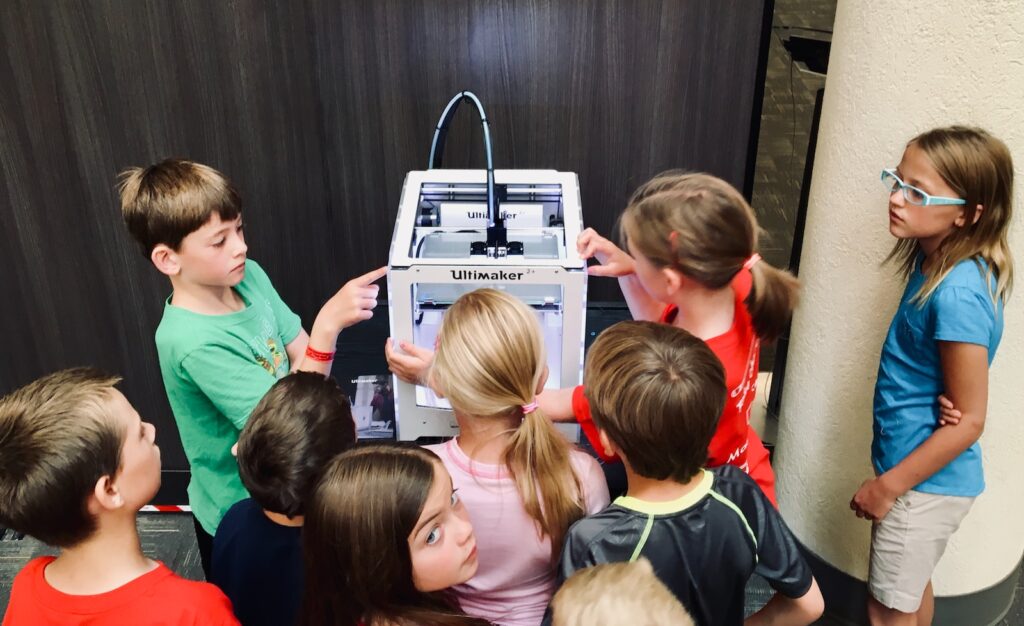In an era defined by technological advancements, the rise of STEM (Science, Technology, Engineering, and Mathematics) education stands as a beacon of empowerment for today’s youth. This paradigm shift in education not only equips students with essential skills but also prepares them to tackle the challenges of the future head-on.
“In the realm of education, STEM is not just an acronym; it’s a pathway to unlocking the potential of our youth. It empowers them not only with knowledge but with the ability to innovate, solve problems, and shape the future.” — A.P.J. Abdul Kalam, Former President of India and Renowned Aerospace Scientist

Nurturing Critical Thinking: The Essence of STEM
STEM education goes beyond rote memorization; it fosters critical thinking and problem-solving skills. Students are encouraged to explore real-world issues, analyze data, and devise innovative solutions. This approach not only enhances academic learning but also cultivates a mindset that is essential for navigating the complexities of the modern world.
Hands-On Learning: Bridging Theory and Practice
One of the hallmarks of STEM education is hands-on learning. Whether through science experiments, coding projects, or engineering challenges, students actively engage with concepts, bridging the gap between theoretical knowledge and practical application. This experiential learning not only deepens understanding but also instills a passion for discovery and experimentation.
Fostering Collaboration: Teamwork in STEM
The collaborative nature of STEM education mirrors the interdisciplinary nature of real-world challenges. Students work together on projects, bringing their unique perspectives and skills to the table. This collaborative approach not only prepares them for future careers but also emphasizes the importance of teamwork in addressing global issues.
Diverse Career Pathways: From Lab Coats to Coding
STEM education opens a multitude of career pathways, from traditional scientific fields to emerging technology sectors. Whether aspiring to be a biologist, engineer, data scientist, or software developer, students find a diverse range of opportunities. This flexibility ensures that STEM education remains relevant and adaptable to the evolving landscape of industries.
Bridging the Gender Gap: Encouraging Inclusivity
Historically, there has been a gender gap in STEM fields. However, STEM education initiatives actively work towards breaking down these barriers. By encouraging inclusivity and highlighting the achievements of women in STEM, these programs inspire young girls to pursue careers in science and technology, contributing to a more diverse and innovative workforce.
Addressing Real-World Challenges: STEM for Social Impact
STEM education goes beyond individual success; it equips students to address pressing global challenges. From climate change to public health crises, STEM skills are essential for devising sustainable solutions. Empowered with knowledge and a sense of responsibility, students become agents of positive change in their communities and the world.
Technological Literacy: Navigating the Digital Landscape
In a world dominated by technology, STEM education ensures that students are not just consumers but creators of technology. From coding to understanding artificial intelligence, technological literacy becomes a fundamental skill. This empowers the youth to navigate the digital landscape with confidence and contribute to the ongoing digital revolution.
Lifelong Learning: STEM as a Continuous Journey
STEM education instills a passion for lifelong learning. The dynamic nature of STEM fields means that there is always something new to explore and discover. This mindset of continuous learning becomes a valuable asset as individuals adapt to evolving technologies and contribute to the ever-expanding realms of science and innovation.

Conclusion: Empowering Tomorrow’s Innovators
As STEM education continues to rise, it emerges as a catalyst for empowering the next generation of innovators and problem-solvers. Beyond the acquisition of knowledge, STEM education cultivates a mindset of curiosity, resilience, and a commitment to creating a better future. In the face of the complex challenges that lie ahead, the rise of STEM education becomes not just an educational trend but a transformative force shaping the leaders and visionaries of tomorrow.

